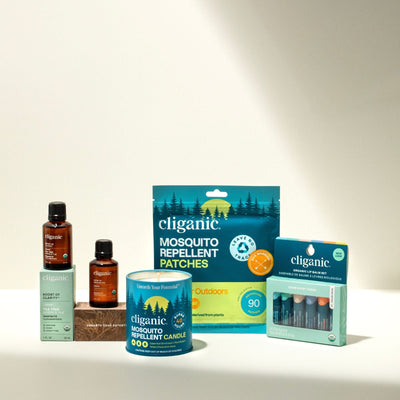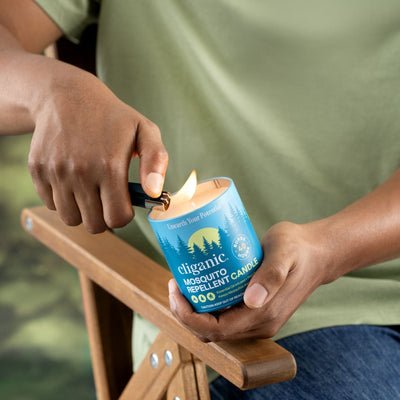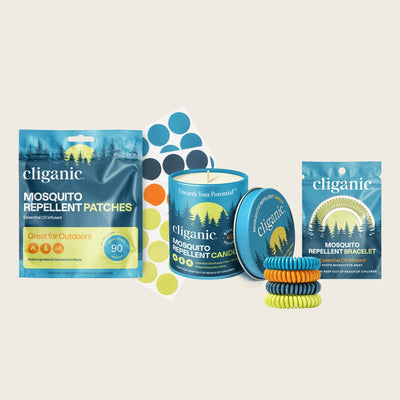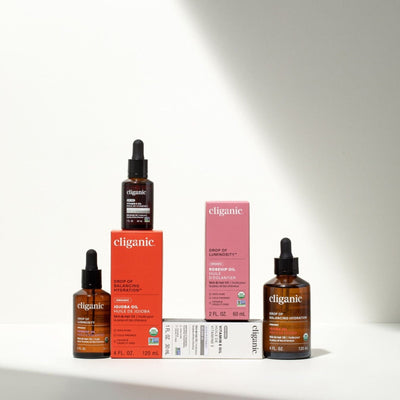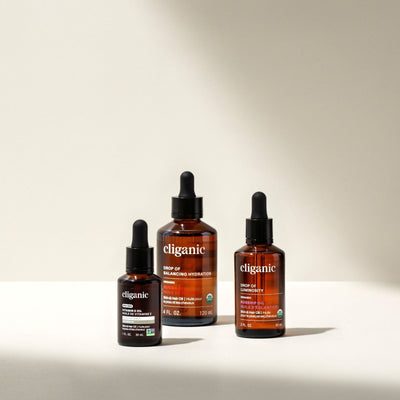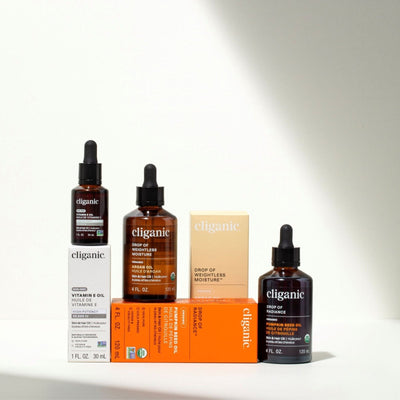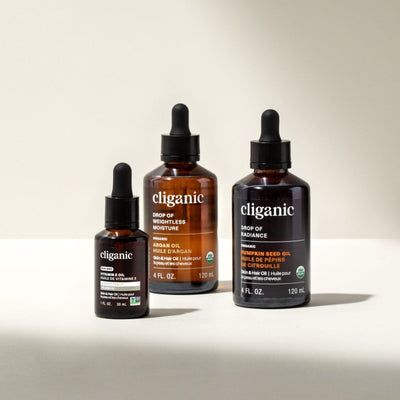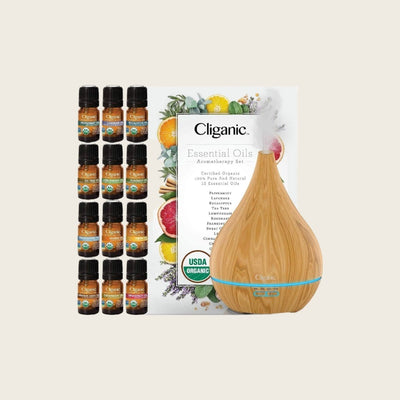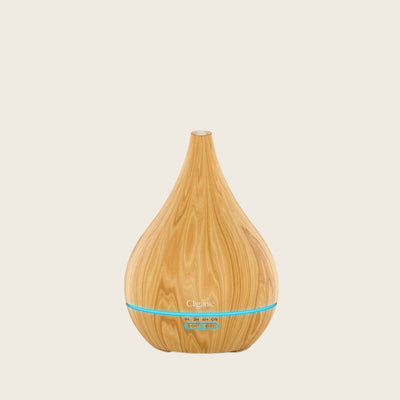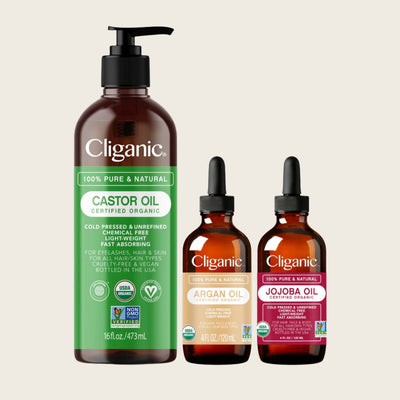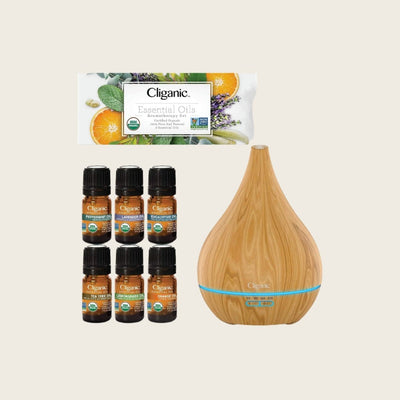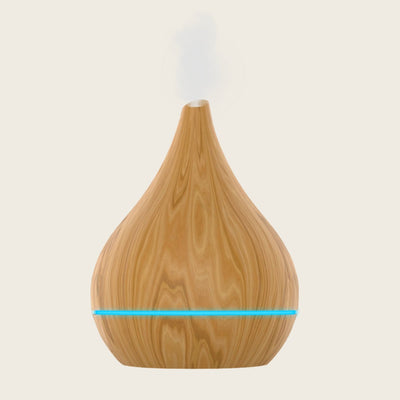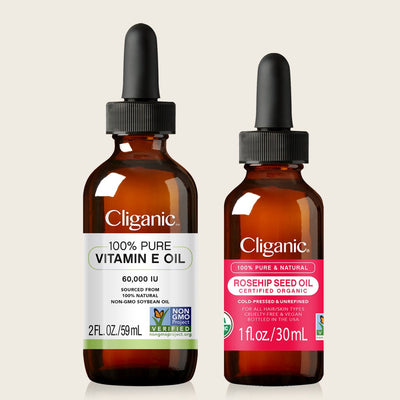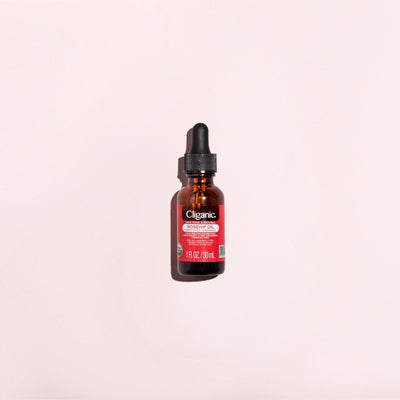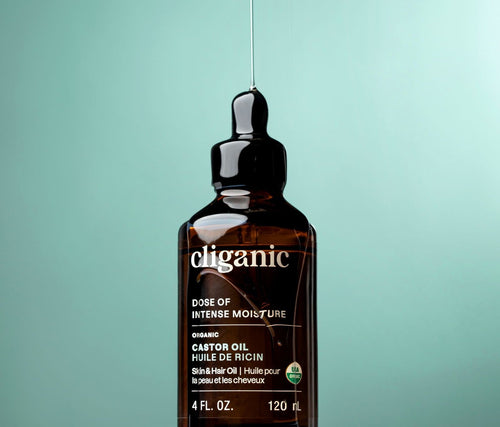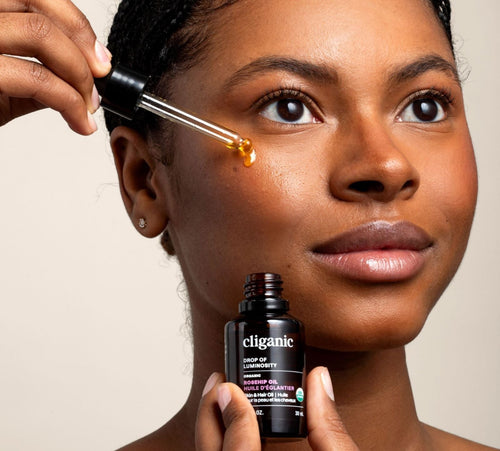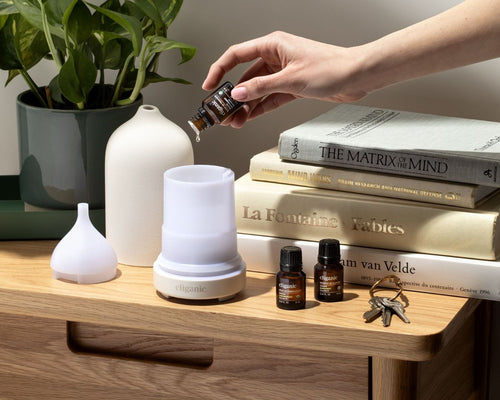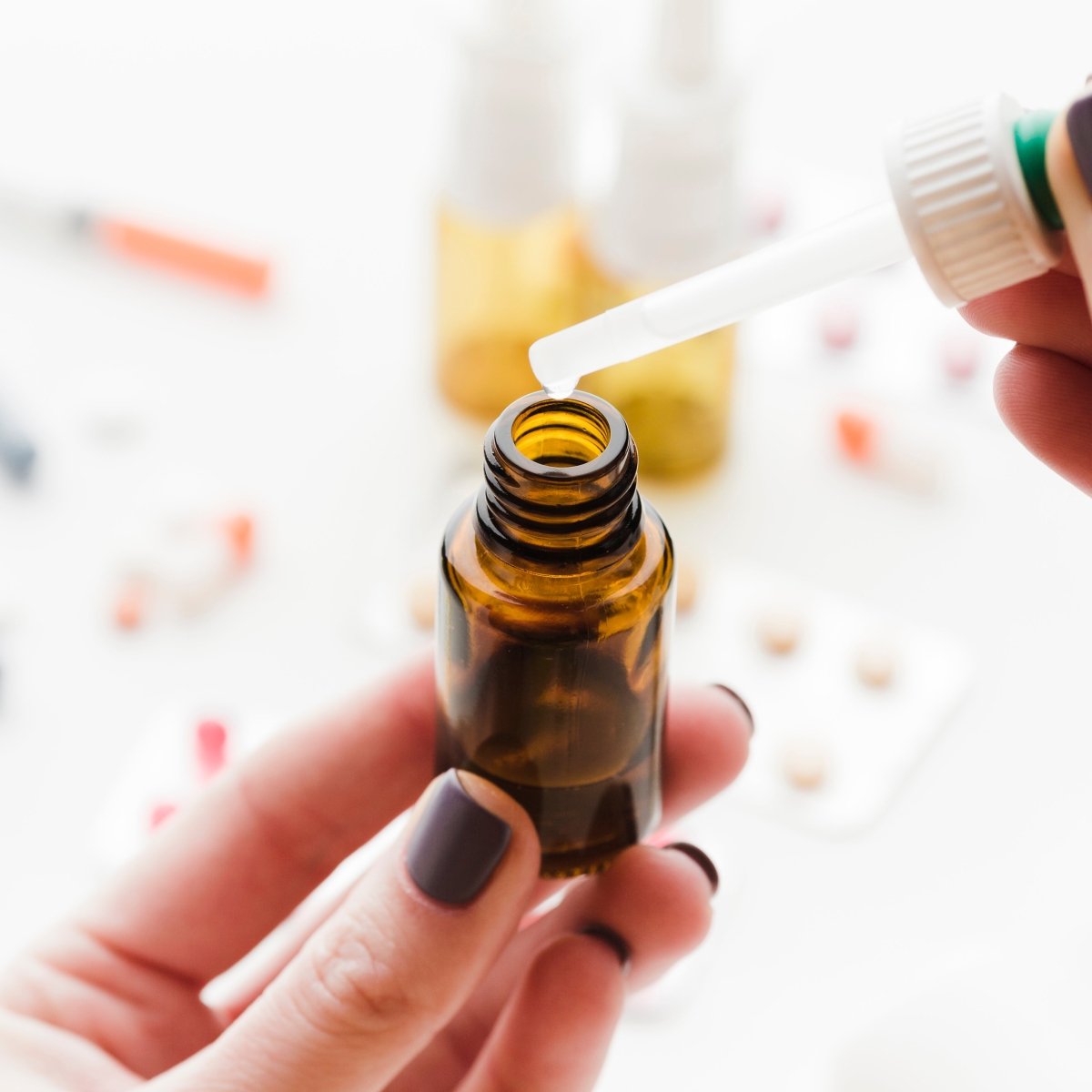
Shelf Life of Essential Oils
Ever wanted to know how long essential oils last before going bad? As with any plant-based wellness product, essential oils will eventually expire, but there are some things you can do to prevent this from happening too quickly. In this article, we take a deep dive into why essential oils expire, the shelf life of essential oils, and how you can properly take care of them to prolong their shelf life.
Why Do Essential Oils Expire?
Oxidation — when an essential oil comes into contact with oxygen — is the primary reason essential oils expire or go rancid. This process begins the moment you open your essential oil bottle. The oxygen bonds with carbon, causing the composition to change and degrade the oil. Some things that speed the oxidation process up are heat and sunlight, which is why it’s important to store your essential oils in a cool, dark place, and that the caps are screwed on tightly so no excess air can get in.

Signs Your Essential Oils Have Expired
If you notice any of the following characteristics, it’s likely your essential oil has gone bad and should no longer be used.
- Different aroma
- Thicker consistency
- Cloudy or murky appearance
Shelf Life of Essential Oils
While the majority of essential oils last three years, there are some that have a shorter shelf life. When you are purchasing essential oils keep their shelf-life in mind.
1-2 Years
The essential oils of this category are generally more prone to oxidation due to their chemical composition. In general, the majority of citrus essential oils (aside from bergamot) and a few of the woodsy varieties have a shorter shelf life because they contain monoterpenes.
- Lemon essential oil
- Orange essential oil
- Grapefruit essential oil
- Cypress essential oil
- Pine essential oil
- Spruce essential oil
- Blue tansy essential oil
2-3 Years
The majority of essential oils have a shelf life of 2-3 years. Their chemical composition can last longer, but is also susceptible to oxidation due to a higher percentage of aldehydes and esters.
- Cardamom essential oil
- Cinnamon bark essential oil
- Eucalyptus essential oil
- Basil essential oil
- Ginger essential oil
- Star anise essential oil
- Lavender essential oil
- Clary sage essential oil
- Thyme essential oil
- Black pepper essential oil
- Bergamot essential oil
- Lemongrass essential oil
- Spearmint essential oil
- Frankincense essential oil
- Tea tree essential oil
4-5 Years
There are some essential oils that can truly outlast the others when it comes to shelf life. This is because they contain sesquiterpenes. Some even become more aromatic over time.
- Sandalwood essential oil
- Patchouli essential oil
- Vetiver essential oil
- Myrrh essential oil
- Cedarwood essential oil
- Clove bud essential oil
- Geranium essential oil
- Palmarosa essential oil
- Peppermint essential oil
- Ylang ylang essential oil
- Rosemary essential oil
- Nutmeg essential oil
Why You Shouldn’t Use Expired Essential Oils
Using expired or rancid essential oils can have consequences such as skin irritations or adverse reactions. It’s very important to check your essential oils before use to make sure they are still viable. Additionally, oxidation degrades the essential oil of its aromatic and therapeutic benefits. In general, you should replace your essential oils every 3 years, unless they are known to have a longer shelf-life. To learn more about how you can use essential oils safely, take a look at this article: Essential Oil Safety Guide for Beginners.
How to Preserve the Shelf Life of Your Essential Oils
When you take care of your essential oils and follow best practices you can actually preserve their shelf life. Here are some ways you can extend the shelf life of your essential oils to prevent them from going rancid too early.
- Avoid direct sunlight and heat
- Store in dark or amber glass bottles to protect them from ultraviolet light
- Re-bottle essential oils in large bottles into smaller bottles so less air is in the container as you use them
- Make sure each essential oil bottle has a tight-fitting lid and check that it is fully screwed on after each use
- Mark the date of purchase on the bottle, so you know when it may expire
- Check all of your essential oils for rancidity yearly
- Store essential oils in a cool, dry, and dark place like a kitchen or medicine cabinet, or even the refrigerator
- If traveling, be sure your essential oils are in a traveling case to protect them from breakage, sunlight, and heat
- Avoid storing essential oils in plastic bottles as some can interact with or dissolve plastic
Now that you know the shelf life of essential oils and how to properly care for them to preserve their chemical composition you can reap the full benefits of aromatherapy. To learn more about how you can keep your essential oils from going bad, take a look at this article: How to Store Essential Oils So They Don’t Go Bad.


